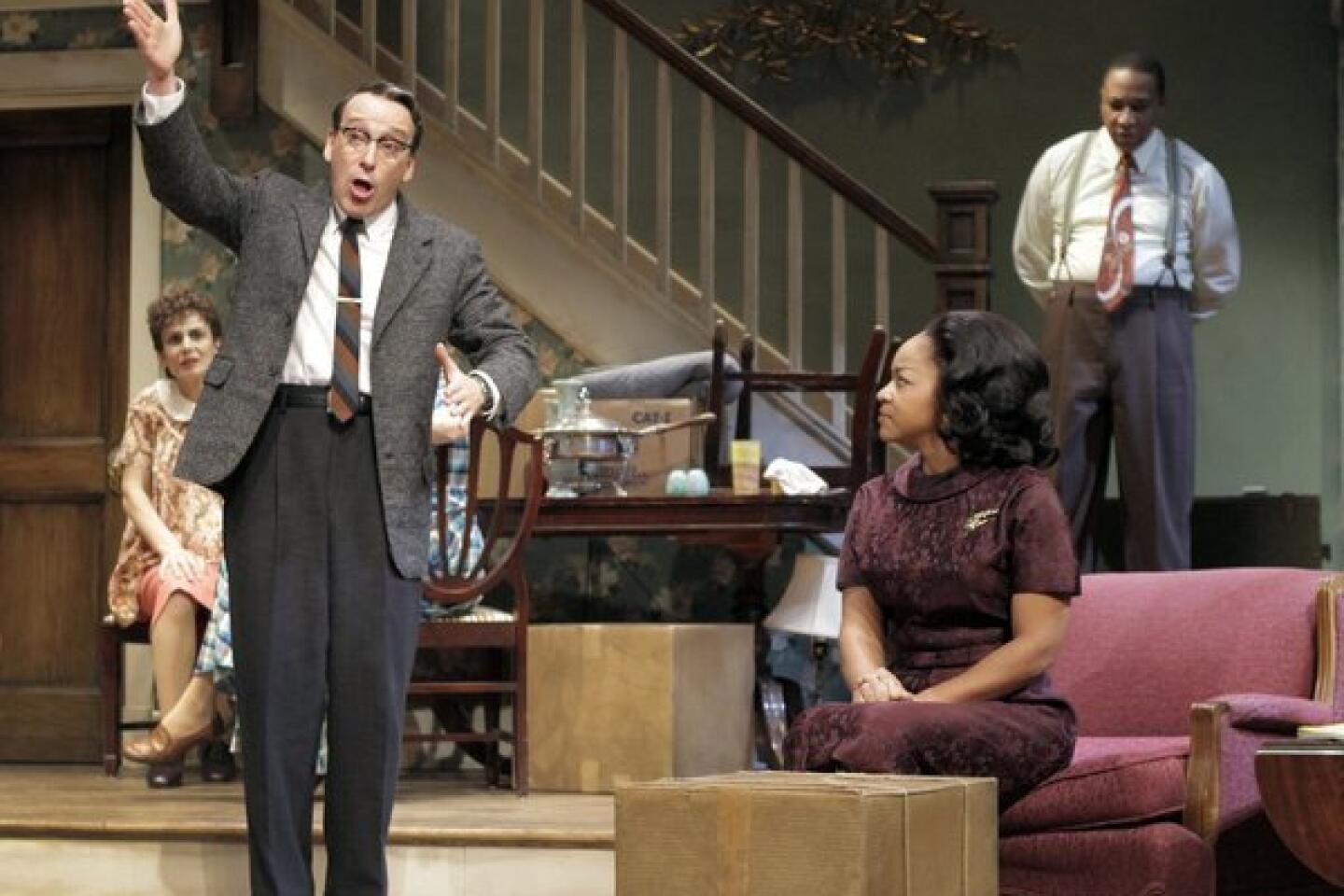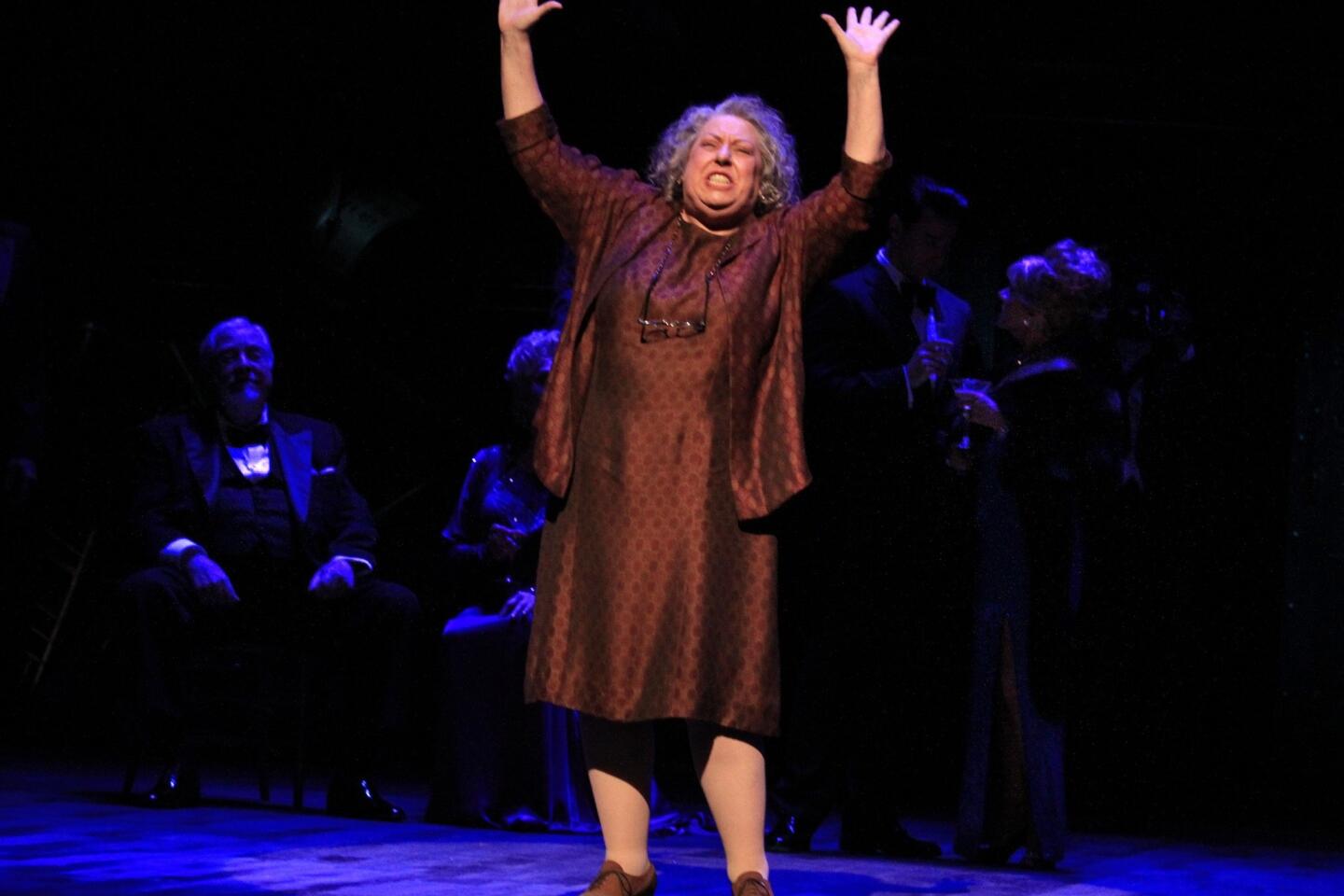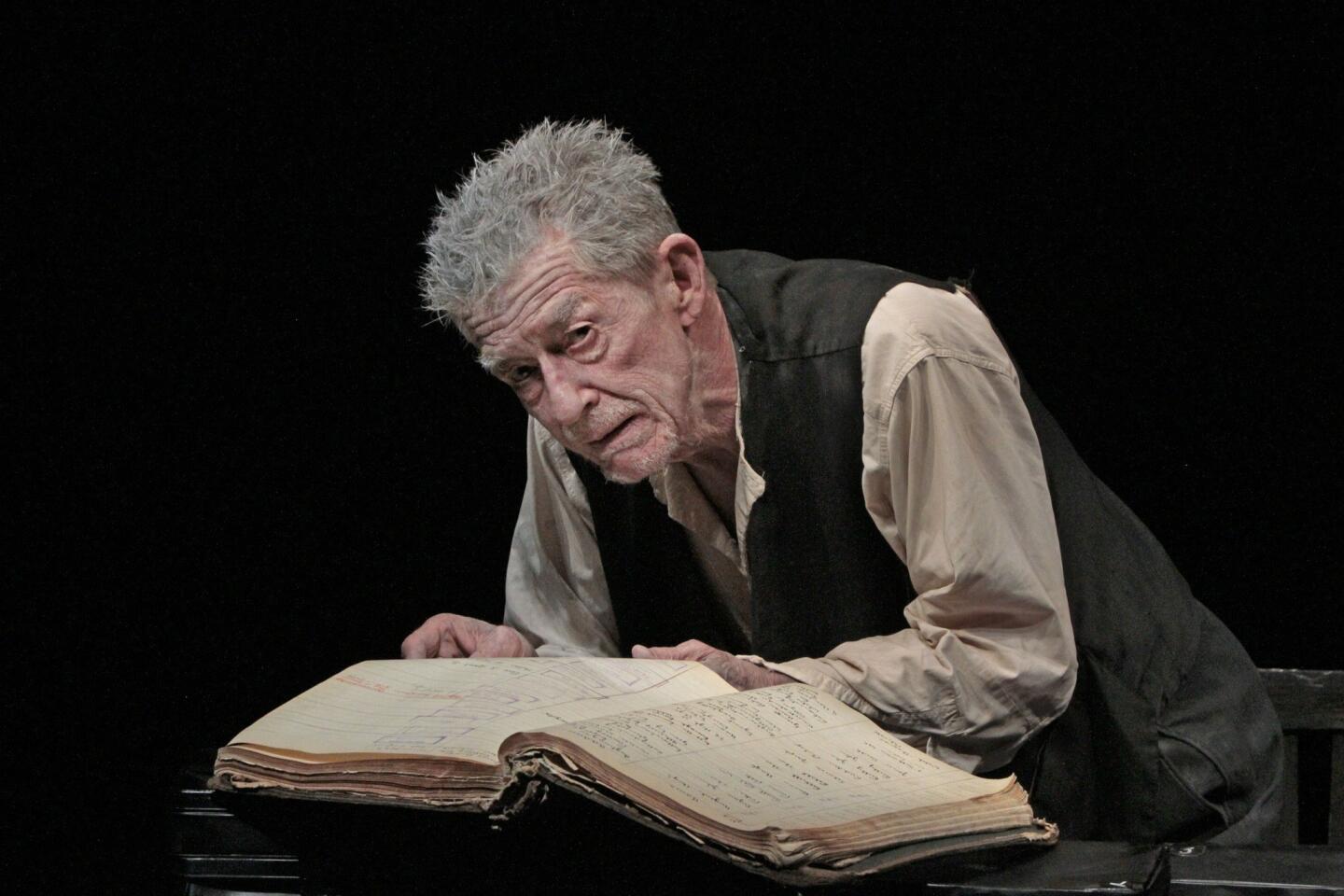‘Enrique VIII’ at the Broad Stage gives voice to Spanish perspective
- Share via
As long as back-stabbing colleagues, flattering minions and starter wives exist, pop culture is likely to maintain its infatuation with Henry VIII.
Anglophone audiences seemingly can’t get enough of the English monarch’s political and romantic intrigues, especially his divorce from his first wife, Spain’s Catherine of Aragón, and his dalliances with the second Mrs. Tudor, Anne Boleyn.
Beginning with Shakespeare’s drama “Henry VIII,” dozens of stage dramas, movies, TV series and books such as Hilary Mantel’s prize-winning “Wolf Hall” have exhumed these historic episodes. But one part of the story has remained steady: It’s nearly always told from the English point of view.
CRITICS’ PICKS: What to watch, where to go, what to eat
This week at the Broad Stage in Santa Monica, the Madrid theater company Rakatá will give voice to the Spanish perspective on the Tudor-Aragón split when it presents “Henry VIII/Enrique VIII,” a condensed, Spanish-language version of Shakespeare’s work.
Speaking in Spanish by phone from Madrid, Rodrigo Arribas, founder and producer of Rakatá with Alejandra Mayo, says that “Enrique VIII” allows Henry’s long-suffering queen of 20-plus years, played by Elena González, to emerge from the shadow cast by her oversize spouse, played by Fernando Gil.
The production also seeks to get beyond the usual litany of beheadings and bodice-rippings to lay bare the Machiavellian 16th-century power plays between church and state, and between England and its continental rivals, Spain and France, that often affected what went on in the royal bedchamber, and vice versa.
CHEAT SHEET: Fall arts preview
“I believe that basically, like today, everything was grounded in the economic time in which these two countries lived,” Arribas says. “They were living in a time in which there was a struggle in Europe for political and economic predominance between nations.”
But the intermission-less, subtitled, 100-minute production, directed by Ernesto Arias, also doesn’t skimp on the sort of flourishes that modern audiences tend to expect when they’re submitting to several acts’ worth of iambic pentameter. “Enrique VIII” includes lively interludes of music and dancing at a lavish costume party at the house of the powerful Cardinal Wolsey, where Anne Boleyn, a noblewoman and handmaiden to Catherine, catches Henry’s roving eye.
Both the exact date and the authorship of the work, first performed in 1613, have long been in dispute. It is believed to have been co-authored by John Fletcher, and its pro-Tudor slant suggests it was written during the reign of Queen Elizabeth, the daughter of Henry VIII and Anne Boleyn.
PHOTOS: Arts and culture in pictures by The Times
Mindful of who was putting bread on his table — and who might put a noose around his neck — Shakespeare and/or Fletcher made sure that “Henry VIII” fully justified the English sovereign’s ruthless decision not only to divorce Catherine, but also to separate England from the Roman Catholic church. Hardly equal in poetry or plotting to the Bard’s greatest history plays, it’s a notable study in nationalistic propaganda.
Yet it also exhibits certain Shakespearean signatures.”The mastery of Shakespeare comes through in the verbal precision, and in the emotional depiction of characters like Catherine,” Arribas says.
Making 500-year-old classics speak to modern times is the forte of Rakatá, which specializes in works by Félix Arturo Lope de Vega, Pedro Calderón de la Barca and other exemplars of Spain’s literary golden age.
PHOTOS: Best in theater for 2012
“These authors have a way of demonstrating that the desires, the needs, the anguish, the ambitions of human beings of many years ago are the same as those of today,” Arribas says. Indeed, he notes, Spanish-English political tensions lately were re-stoked by the latest border dispute over Gibraltar, the Mediterranean territory claimed by both European Union countries.
Performed last summer at Shakespeare’s Globe theater as part of London’s cultural festivities celebrating the Olympic Games, “Enrique VIII” impressed hard-to-please British critics. “A supremely accomplished retelling of this most notorious episode in English history,” wrote a reviewer for the Guardian.
“Imagine the responsibility,” says Gil, the actor who portrays Henry, speaking by phone, “because you were incarnating one of the most important kings, who brought about a huge change in society.”
The Broad engagement will mark the production’s debut in the United States. Arribas believes that presenting the work in Southern California will bring a new dimension to Rakatá’s production. One element of the 16th-century rivalry between Spain and England, after all, was over control of New World colonies, he observes, and that legacy is still playing out today in bilingual Los Angeles.
Cultural interchanges like the Broad’s presentation of “Enrique VIII,” he says, “build bridges between languages.”
“It makes a global community that is united by language.”
---------------------------
‘Henry VIII / Enrique VIII’
Where: Broad Stage, 1310 11th St., Santa Monica
When: 7:30 p.m. Thu.-Sat.; 2 p.m. Sat., Sun.
Tickets: $32-$65
Info: (310) 434-3470 or (310) 434-3200; https://www.thebroadstage.com
More to Read
The biggest entertainment stories
Get our big stories about Hollywood, film, television, music, arts, culture and more right in your inbox as soon as they publish.
You may occasionally receive promotional content from the Los Angeles Times.














